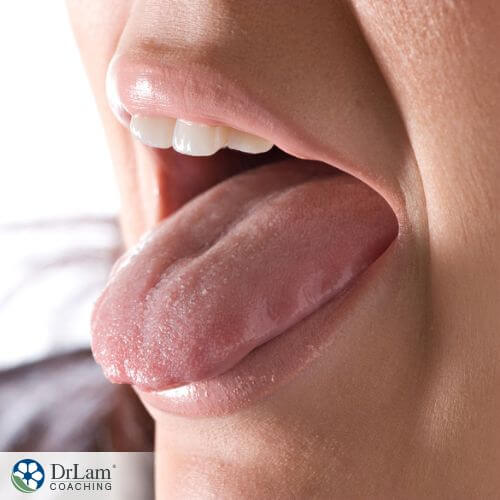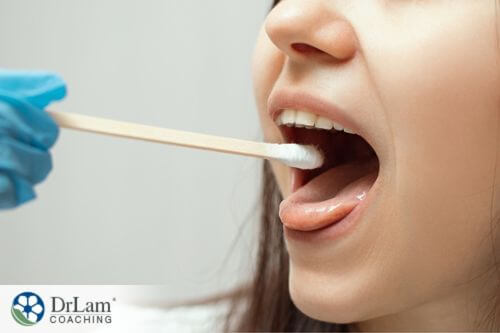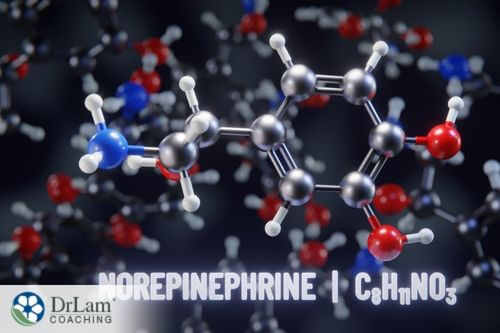We don't think about our saliva much. It is just there. We may lick our lips now and then, or give an involuntary swallow on occasion, but we don't spend a long time pondering our saliva. But we should not underestimate the importance of saliva. Saliva plays a significant role in many bodily functions.
To understand the importance of saliva, we first need to understand what it is.
 The majority of your saliva consists of water. In fact, an astonishing 98%. The remaining two percent consists of small quantities of important substances like antibacterial agents, proteins, enzymes, minerals, electrolytes, and mucus.
The majority of your saliva consists of water. In fact, an astonishing 98%. The remaining two percent consists of small quantities of important substances like antibacterial agents, proteins, enzymes, minerals, electrolytes, and mucus.
Saliva is primarily made in your salivary glands. These occur mainly on your tongue, cheeks, and lips, although they occur in other areas of the mouth as well. Saliva reaches your mouth from the salivary glands, where it is produced through tiny ducts. This constant process ensures your mouth remains moist.
Your mouth can create up to four pints of saliva each day. The highest saliva production usually occurs when you eat. Normally, your saliva production is higher during the latter part of the day, with the least amount produced at night.
There are several types of saliva:
We all know that saliva moistens the mouth. Saliva naturally lubricates your mouth to keep it feeling comfortable. But it also lubricates your mouth while eating, allowing you to swallow your food more easily. At the same time, it helps to neutralize any acids that may cause harm to your mouth tissue, teeth, or even esophagus lining.
Another job of saliva is to help get rid of bacteria in the mouth, help in the prevention of halitosis (or bad breath), help to protect tooth enamel and prevent tooth decay, and even encourage healing in wounds. The latter is due to the presence of neutrophils, or white blood cells that fight infections, in your saliva.
For those who wear dentures, saliva even helps keep them in place!
Sometimes, however, you may experience a dry mouth. When this happens, it means your mouth is not making enough saliva. We call this condition xerostomia.
When this happens, you may experience dryness and swelling of your tongue, cheeks, and gums. Food may also not taste the same. Your breath may smell bad because germs thrive in this type of environment. It may also promote gum disease and tooth decay. This is because saliva tends to help clear food particles from your teeth, thereby helping to prevent this from happening.
Dry mouth has many potential causes. Although unclear why, the aging process may play a role, as does diet and the prevalence of any systemic health issues. Certain drugs may also contribute to the condition, as may dietary deficits.
The most common causes of dry mouth include:
 While research into the importance of saliva has traditionally focused on the mouth cavity and the route to the stomach, recent studies have shown dry mouth to be a symptom of a reduction in vagus nerve tone or poor autonomic nerve function.
While research into the importance of saliva has traditionally focused on the mouth cavity and the route to the stomach, recent studies have shown dry mouth to be a symptom of a reduction in vagus nerve tone or poor autonomic nerve function.
Your vagus nerve forms part of your peripheral nervous system. The peripheral nervous system plays a role in many bodily functions, including your immune response, heart rate, and mood. The vagus nerve also serves as the connection between your gastrointestinal tract and brain. Furthermore, your peripheral nervous system plays a significant role in your body’s innate ability to recover from vigorous exercise, stress, or injuries. It also plays a role in acetylcholine release. Acetylcholine is a neurotransmitter that helps trigger saliva secretion.
You can do many things to counteract a dry mouth situation.
One step is to stay hydrated by drinking plenty of water. Herbal teas are also good options. Chewing gum or sucking on candy may also stimulate saliva production. Do, however, opt for sugarless varieties.
Certain foods may also promote an increase in saliva production. These include celery, carrots, tart cherries, goji berries, and apples as well as lemon and tomato juice. Certain spices like cayenne pepper, ginger, and cardamom may also help.
If the situation persists, you could consider using an artificial saliva spray. Used as needed, artificial saliva can help keep your mouth moist. Do remember, however, that it does not contain the various substances found in your own saliva that promote digestion.
Another uncomfortable situation happens when the body makes more saliva than usual. We compensate by swallowing more often. It is usually not a problem unless the situation persists. Increased saliva production is usually something of short duration. It may be the result of eating something spicy or sour. Both tend to send salivary glands into overdrive. If excessive saliva production becomes a problem, you can thus look at changing your diet.
If what you eat is not causing excessive saliva production, you may need to see your healthcare provider. Excessive saliva production may point to a health condition. Common causes of excessive saliva production include:
Someone who produces excessive amounts of saliva may show some of the following additional symptoms:
Besides these physical symptoms, you may also experience psychological symptoms that include social anxiety. Your ability to speak properly may also be affected. A further possibility is an increased risk of choking. Also, if you inhale foods or fluids into your lungs, you can develop aspiration pneumonia.
As strange as it may seem, drinking enough water may help address excessive saliva production. Brushing your teeth or gargling with mouthwash may cause a temporary decrease in saliva production. A cup of sage or ginger tea may also help address the situation.
If you have a medical issue like sinusitis, addressing the issue may help curb saliva production.
If excessive saliva production persists and becomes a problem, please talk to your healthcare provider. They may recommend various therapies to help with the situation. Examples of these include:
 Hormones like norepinephrine and acetylcholine play a role in saliva release as well as the volume of saliva produced. Furthermore, numerous studies have indicated the presence of a large variety of hormones in your saliva. Examples include steroids, salivary peptide hormones, and amines like melatonin. These hormones all play various roles in your body’s regulatory processes. And it is due to their presence that saliva is important for testing hormone levels.
Hormones like norepinephrine and acetylcholine play a role in saliva release as well as the volume of saliva produced. Furthermore, numerous studies have indicated the presence of a large variety of hormones in your saliva. Examples include steroids, salivary peptide hormones, and amines like melatonin. These hormones all play various roles in your body’s regulatory processes. And it is due to their presence that saliva is important for testing hormone levels.
The importance of saliva testing for hormones includes testing cortisol, progesterone, testosterone, free estradiol, and DHEA (Dehydroepiandrosterone) levels. Assessing the levels of these different hormones can help point toward certain health issues. DHEA, for example, is produced in your adrenal glands. Compromised DHEA levels could point to adrenal issues. It could also point to imbalances in your testosterone and estrogen levels. DHEA participates in the production of both these hormones.
Looking after your hormone health is important for many reasons.
Stress causes hormones that can impact your saliva production. Stress, however, could also contribute to many health issues. This is because of its effect on your adrenal glands.
While acute stress may cause an increase in stress hormone production at the cost of the production of other hormones, things usually return to normal once the situation resolves itself. Chronic stress, however, has a long-term effect on your body’s NeuroEndoMetabolic (NEM) Stress Response and could cause an imbalance in hormone production. The adrenals may increase cortisol production to keep up with the demand put on them by stress, but end up depleting resources needed for other hormones. If the situation continues indefinitely, adrenal fatigue may result.
This could cause a cascade of events that impact all body systems to various degrees. Here the importance of saliva testing is to keep track of your different hormone levels as a way to identify different related health issues and target hormone therapy.
We tend to underestimate the importance of saliva when it comes to its function and ability to help in identifying underlying hormonal issues. If you would like to know about the importance of saliva, the team at Dr. Lam Coaching can help. We offer a free** no-obligation phone consultation at +1 (626) 571-1234 where we will privately discuss any concerns you may have. You can also contact us through the Ask The Doctor system by clicking here.
The importance of saliva for your adrenal health lies in its role for measuring hormone levels. By measuring the different hormone levels with a saliva test, your healthcare provider is better able to determine a course of action that supports adrenal health. Saliva also supports key aspects of digestion and dental health, which in turn keep your whole body healthy and reduce stress on the adrenals.
